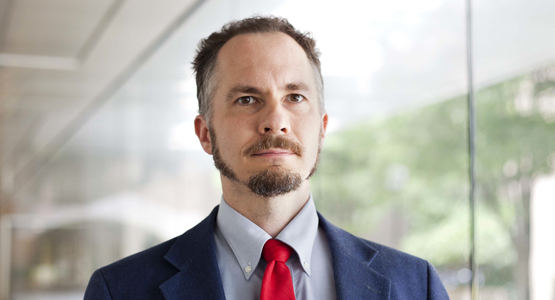Prof. Robert Dick to apply cyber information to air quality management
The grant is part of a new $12.5M initiative by the National Science Foundation to encourage computing innovations for a sustainable society.

 Enlarge
Enlarge
Prof. Robert Dick, Associate Professor of Electrical and Computer Engineering and specialist in embedded systems, received a CyberSEES grant to study the impact of weather and human activity on production of, and exposure to, ozone and other air pollutants.
The grant, “Connecting Next-generation Air Pollution Exposure Measurements to Environmentally Sustainable Communities,” is part of a new $12.5M initiative by the National Science Foundation to encourage computing innovations for a sustainable society [see the NSF press release]. The initiative is called CyberSEES, short for Cyber-Innovation for Sustainability Science and Engineering. The CyberSEES program aims to advance the science of sustainability in tandem with advances in computing and communication technologies.
Robert’s work on the project will focus on gathering information about air quality in the micro-environments around people, and will be used in the development of scalable pollution exposure models. These models will help us better understand the relationships between human activity, weather, and the production of, and exposure to, ozone and other air pollutants. [read more about the project]
 MENU
MENU 
